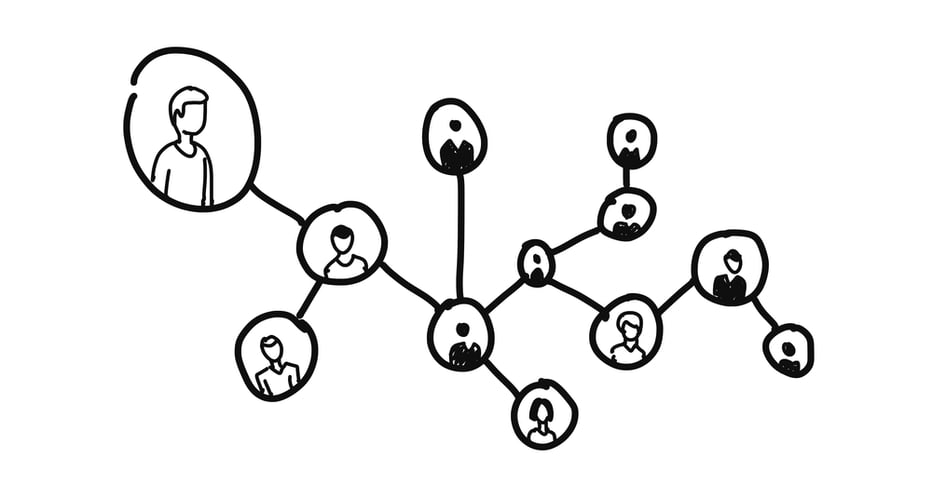When the radio and television were invented, the cost to broadcast was MASSIVE, and programmers would struggle to afford it. The industry put their heads together to come up with a solution to mitigate costs. They decided that advertisers would underwrite the high costs of the programs by showing advertisements during the show.
Terry O’Reilly, a famous radio broadcaster, describes this feature of media as a contract between marketers and viewers:
“Sponsors gave programming, and in return, they took some of the listener’s time and attention.”
According to O’Reilly, part of this contract involved advertisers offering viewers something valuable for their time:
"(Media) must figure out a way to honour (sic) an implicit contract between advertisers and consumers which, simply put, promises that advertisers must give you something in exchange for their imposition on your time, attention, and space. An ad might offer useful information, an insight or a solution to a problem."
I believe that this excerpt from O'reilly's book holds the key to fixing marketing. Good marketing should provide value to a customer and offer more than it takes away; it shouldn't just try to extract value or treat them like a number.
I want to use the rest of this post to offer a framework on how to use marketing to build value with your customer.

Extractive vs. Value Driven Marketing
As I’ve written in previous posts, I believe that marketing should be centered around building trust with your customer.
Researchers estimate that the average person sees around 5,000 advertisements per day. It's obvious that there isn't time to possibly time to pay attention to all of them.
So how do you create marketing material that is impactful for your customers and that cuts through the barrage of the other marketing they see?
Think of it this way: if you were to meet someone new, what would you want them to say? What could they say to you that would signal trust and make you want to invest in that relationship?
1. Demonstrate Expertise
People trust somebody that is a subject matter expert. For example, we invest so heavily in our Pro's Corner Blog because we believe that providing our customers with technical expertise is one of the best ways to build a relationship.
How to implement this:
- The best way to demonstrate expertise in your marketing is to frequently generate content that your audience can interact with. Note that this is a time-consuming investment. If you start a blog you want to post on a frequent basis (we post at least once a week), and an article usually takes several hours to research and write.
- If this isn’t possible, you should at least maintain a website with content that you regularly update. Example: I was recently on Michael Zachery’s Facebook group Residential Carpet Cleaners Page, Educated Textile Cleaning Professionals, and I came across a great post where Michael Waggoner of Men in Suits Floor Cleaning shared the FAQ page for his website. The reason that I love this page is that it is thorough and the writing is easy for customers to relate to. If a customer reads this page they are well-educated about what to expect when Men in Suits comes to clean. If I am on the fence about using their service, their website serves as a powerful tool to persuade me to get my carpet cleaned.
2. Build a Giving Relationship
Are you giving to your customers, or are you always asking them for things?
According to Robert Cialdini Ph.D., author of the seminal work "Influence: The Psychology of Persuasion", one of the universal laws of persuasion is reciprocity. People are much more likely to give to someone that gives to them.
Think of that friend that’s always asking for money. This person is always showing up to talk to us when they need to buy something, but other than these occasions you never really hear from them. At some point, these occasions of somebody frequently asking for money gets old, yet oftentimes as marketers, people communicate with their customers only when they want them to buy something.
This is a mistake that many companies make, and it annoys customers.
Ideally, conversations with our customers should involve 70 percent relationship building and 30 percent selling.
How to Implement this:
- Provide free content including blog posts, videos, educational content in emails, happy birthday emails, and Social media tips on how to maintain a clean environment.
- You can also create free content that incorporates what you’re selling in the body of the text. On Pro's Corner we include products in our blog posts when we are describing a cleaning process or how to use a piece of equipment. By doing this, our writing feels much more natural and less salesy.
- Frequency of communication builds upon itself over time: As you communicate with your customers on a regular basis you are building a relationship with that provides mutual value.

3. Be Transparency in your Communication
Don't tell lies or speak in hyperbole about your service. I’ve written about this before. Not only do customers appreciate honesty, but honesty also helps customers to make better buying decisions and get more of what they need.
How to implement this:
- One of the unique parts of your business model is that you get to visit your customers in their homes. This is ideal. There has never been, and will never be a better place to build a relationship with somebody than in person. You should be strategic and use your customer's home as a platform to demonstrate that you know which materials are in your customer's home and explain your service. If you do this correctly you can even upsell your customer on additional service.
- You should answer any questions that your customer has before and after each visit. This communicates to them that you care about what they think. You can also send an email to them that provides answers to common questions.
- Only communicate with your customers when you have something valuable to say
4. Spending time engaging with your customers
Your relationship with your customers should be engaging. Don't just sell your service. Frequently share value with your customers and talk to them like a normal person. Your interactions with your customer allow your brand and personality to shine through, and your customers will remember this.
How to Implement this:
- Do everything that you can to build a personal relationship with your customer, both in-person and electronically.
- Follow the advice in this article that talks about what actual cleaners are doing to have a massively successful business
4. Create a community
Values are important. What does your business stand for, and what impressions do you want to leave with your customer? Community is all about building a connection with people. People build a relationship with others that share similar values, and they will naturally desire to be connected to these companies.
How to Implement this:
- When your customers love your service, they will market it to other people. They will eagerly tell their friends and neighbors about the amazing results that you provide.
- How you dress, how you talk, how environmentally friendly your products are, and how kind you are in your marketing materials and interactions are all an integral part of the community that you create.
- You can create a Facebook business page where your customers can interact with each other. Post pictures of your jobs, tips for maintaining a clean house, and other creative content.

Key Takeaways
- Marketing should be used to add value to your service, not to just extract money from your customers or bother them
- Value is created when your marketing gives something to your customers:
- When it builds a relationship
- Creates trust
- Offers additional knowledge and expertise
- Helps to connect people and build community
- Don't have a mindset of taking from your customers, have a service-oriented mindset; give freely to your customers and they will give to you in return.
- When done correctly, good marketing can be used as a justification to charge higher prices for your services. Your customers will pay more to use the services of somebody that they have a relationship with and trust
- If you want to learn more about the principles I've, I would recommend reading "Marketing Rebellion: The Most Human Company Wins" by marketing legend Mark Schaffer. The ideas I wrote about in this article were inspired by his work.
References
"The Age of Persuasion: How Marketing Ate Our Culture" by Terry O'Reilly and Mike Tennant (see Chapter 2)
"Influence: The Psychology of Persuasion" by Robert Cialdini, Ph.D.
"Marketing Rebellion: The Most Human Company Wins" by Mark Schaefer
